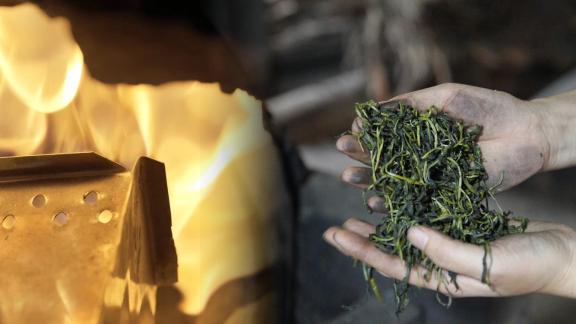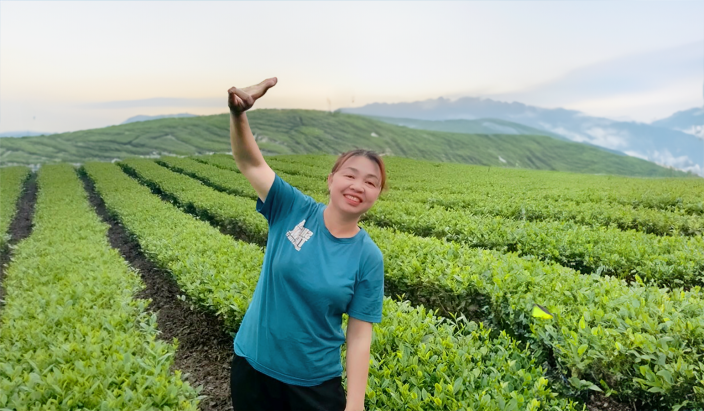“This technology presents a sustainable future for energy-intensive industries.”
"Gone are the days when women were barred from the realm of business. Today, we stand shoulder to shoulder with men in the spheres of production and commerce."
Over a cup of tea, Ms. Le Thi Thanh, the director of the Van Phuc Tea Cooperative in Dai Tu district, Thai Nguyen province, shares her story with a warm smile. Boasting 23 years of experience, Ms. Thanh has carved a niche for herself in the green tea industry through her commitment to quality and innovation. Always on the lookout for ways to enhance production, boost efficiency, and cut costs, she embodies the spirit of progress.
When the "Biomass Gasification Technology - Sustainable Energy Solutions for Agricultural Product Processing and Waste Management in Rural Vietnam" (BEST) project introduced the community to stoves powered by biomass gasification technology (VCBG), Ms. Thanh advocated for their trial at local workshops. After months of testing, the results were clear: VCBG-powered stoves offered a significant reduction in fuel expenses, slashing costs by 20-30% compared to traditional wood stoves. Ms. Thanh observed, "Leveraging readily available biomass presents a tremendous opportunity to both safeguard our environment and minimize waste. This is a sustainable future for energy-intensive industries."
The introduction of VCBG stoves also brought about labor savings, thanks to their automated fuel-feeding system, which negates the need for constant supervision. This innovation allows women to devote more attention to the meticulous selection of tea leaves and overall process management. Ms. Thanh praises the stove's user-friendliness and efficiency, noting, "It provides a more consistent heat compared to wood stoves, and the project offered us comprehensive guidance every step of the way."

Ms. Thanh is keen to highlight the pivotal role women play in the tea industry where they are the primary workforce. Thanh herself has given significant suggestions for technological refinements, such as enhanced smoke control and improved stove materials for better heat retention and durability. She is a firm believer in the ability of both men and women to adeptly harness new technologies and has been instrumental in introducing VCBG to other female cooperative members.
The BEST project, recognizing the crucial role women play in technology adoption and dissemination, actively encourages their participation in all its training initiatives. This ensures that women not only gain firsthand experience but also contribute to the technological evolution. The project's emphasis on female involvement is further evidenced by the widespread use of the BEST phone application among women, facilitating easy access to biomass and equipment procurement.
Ms. Thanh expressed her enthusiasm for the BEST app, a digital marketplace for biomass and mechanical equipment. "It simplifies the procurement process, encouraging more women and farming households to embrace this technology," she says, optimistic about the formation of a green energy community.
The integration of innovative green technologies in agriculture, as exemplified by the BEST project, serves not just to economize and elevate product quality but also to advance the circular economy and foster gender equality in economic participation. This initiative is part of the "Biomass Gasification Technology - Sustainable Energy Solution for Agri-Food Processing and Waste Management in Rural Areas of Vietnam" project, a collaboration between Oxfam in Vietnam and the Center for Creativity and Sustainability Study and Consultancy (CCS), with financial support from the European Union. It stands as a testament to the transformative power of sustainable solutions.
